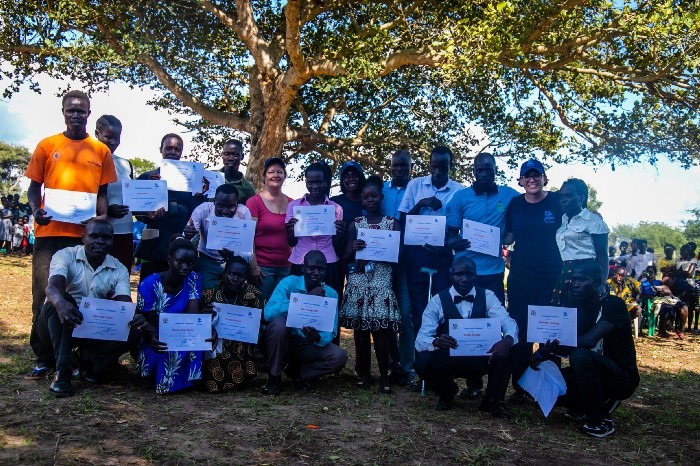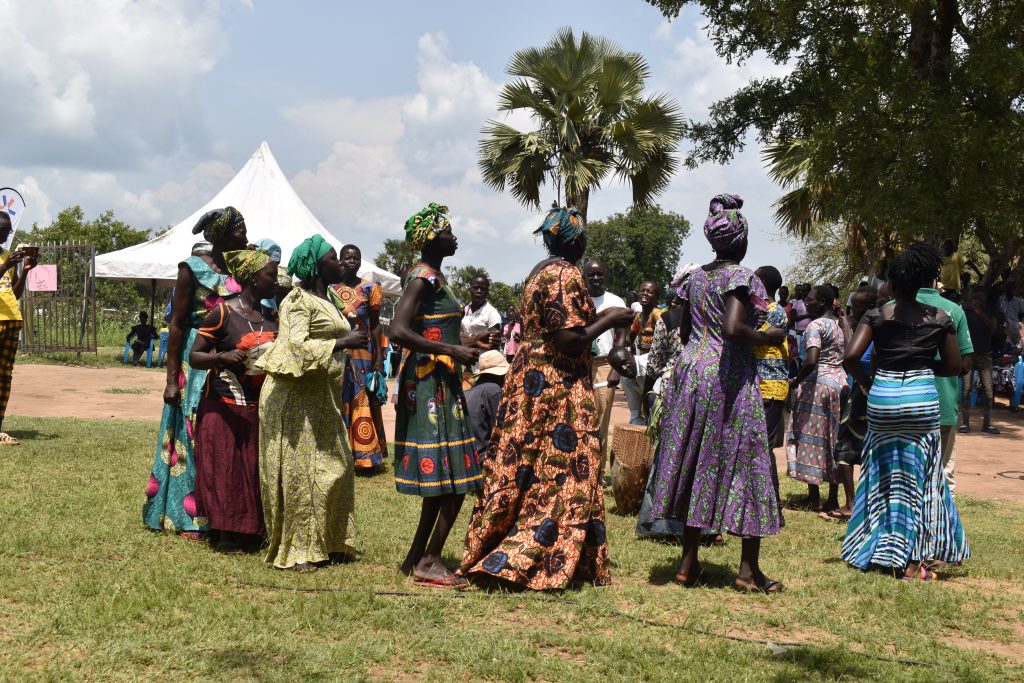Refugees in Uganda need access to COVID-19 information too
“Having the right information to improve social distancing and maintain personal hygiene helps to instill confidence,” explained Beatrice, an IsraAID refugee facilitator.
Can you introduce yourself and where you work?
Hi, I’m Apio Annet, and I’m IsraAID Country Director for both Uganda and Kenya. We support refugee and host communities, a majority of whom originally came from South Sudan, focusing on Child Protection issues and providing support at our five Child-Friendly Spaces across the two countries. We work in Kenya’s Kakuma Refugee Camp, home to over 185,000 refugees, and in Uganda’s Palorinya Refugee Settlement, where some 120,000 refugees live.
This is a particularly difficult environment to control the spread of infection because access to vital essentials — including soap, water, other hygiene products, and indeed information — is extremely limited.
How has the COVID-19 outbreak impacted your daily work?
Currently, the Palorinya settlement Camp in northern Uganda is still on partial lockdown, which began in late March. This is a particularly difficult environment to control the spread of infection because access to vital essentials — including soap, water, other hygiene products, and indeed information — is extremely limited. Refugees in this remote area speak multiple languages and very few own radios; television is not even an option. Given that general information regarding COVID-19 is mainly shared in broadcasts on radio and television networks, as well as through Ministry of Health pamphlets, very little information has reached this community. When it does, it’s accessible in a limited number of languages. With close to no network connectivity — people can’t see all of the infographics and messages being shared on social media.
Wow. That sounds incredibly challenging. Considering these circumstances, what are you able to do to respond?
Well, our facilitators, who — during ‘normal’ times — run each of our Child-Friendly Spaces, are our main asset. They’re locally-recruited, meaning that they are from the refugee or host communities, and IsraAID Protection professionals have trained them to support children and their families. This means that across Kenya and Uganda we have 75 young, committed community leaders, ready to jump into action. They’ve divided up the families we serve amongst themselves and are contacting them regularly to provide support over the phone. Thus far, they’ve been able to reach 429 households — including 1,706 adults and 3,362 children. This means that across Kenya and Uganda we have 75 young, committed community leaders, ready to jump into action.
What kind of support can they give over the phone, considering the limitations?
One of our facilitators at our Iboa Child-Friendly Space in Uganda, Lilian, told me that she’s working directly with 15 households. Lilian speaks Madi — the local language in the Palorinya area — so she’s primarily in touch with members of the Ugandan host community. Mostly, her phone calls offer some stress relief and address the high levels of anxiety among community members. “I’m used to face-to-face interactions during home visits — but the more I interact with families on the phone, the more I realize the extent to which I can calm their anxiety.” She said that going through her call list is one of the highlights of her days in isolation, as well.
People need access to information. The other main support we’re able to give is really simple but easily overlooked: people need access to information. Not knowing how to protect themselves and their families can exacerbate the stress Lilian spoke about.
How do you see these stress-relief phone calls translating back to “normalcy” once the lockdown is over?
“Having the right information to improve social distancing and maintain personal hygiene helps to instill confidence.” The reality is that many of the issues the pandemic brings to the fore are not new, and not unique to this moment. Even before COVID-19 altered our daily routines, there was a lack of information reaching communities like these. Another of our facilitators, Beatrice, who works at the Dringungulu Child-Friendly Space, also in Uganda, explained to me how important this is. Beatrice is a refugee from South Sudan but has lived in Uganda for over four years. She’s fluent in both Madi and Kuku — so she serves an incredibly critical role in acting as a bridge between the refugee and host communities. Beatrice identified some examples of risky behavior in some households amid the misunderstandings around COVID-19. “Having the right information to improve social distancing and maintain personal hygiene helps to instill confidence,” Beatrice added. The reality is that this will remain much of our mandate in life after COVID — just as it did before.
Providing the framework for communities to take responsibility for their futures is the key to long-term, sustainable growth. This is true whether we’re talking about information to stop the spread of a virus, or the skillset to provide psychosocial support to a family in a challenging situation. Our teams in Uganda and Kenya are committed to continuing working with communities to do just that.



